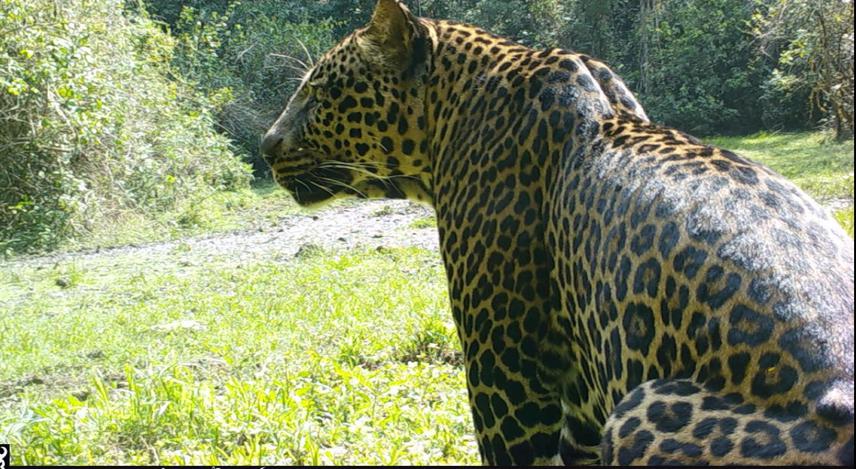Behailu Etana Disasa
This project aims to investigate the importance of shade coffee habitats for the conservation of large mammalian diversity in Ethiopia.

Leopard (Panthera pardus).
The value of shade-grown coffee farms for biodiversity conservation and ecosystem service provisioning has gained widespread acceptance. The Ethiopian shade coffee farms - coffee farms in which the native tree canopy is retained - are remarkably ‘‘bird-friendly’’ supporting high avian biodiversity. Another recent study revealed that Ethiopian coffee farms could support a considerable portion of the woody biodiversity currently disappearing across the country. Ethiopia contains a significant fraction of the world’s biodiversity, and previous research conducted by parts of our team has revealed the presence of cryptic mammals in the Ethiopian fauna. However whether Ethiopian shade coffee farms harbour high levels of mammalian diversity is currently unknown. This project primarily aims to determine the importance of shade-coffee for mammals biodiversity conservation.
With this study, I plan to investigate levels of mammal biodiversity within the following coffee plantation/forest types:
a) wild coffee,
b) semi-wild coffee,
c) small-scale garden coffee,
d) large scale sun coffee,
e) natural forest with no coffee in an area located in the largest remaining tropical forest of Ethiopia.
Certified shade coffee plantations (certified by recognized institutes or NGOs based on ecological and environmental standards) also will be sampled regardless of the category of the coffee plantation types. Habitat classification will initially be carried out to identify forest cover from 2m resolution SPOT image in ERDASS Imagine software.
Within each habitat type, the presence of large mammals will be recorded by using transect sampling methods and the population density will be estimated using DISTANCE. In order to capture shy and elusive species e.g. many carnivores) I will place 30 infrared camera traps in each sampling habitat. In addition, I will establish plots of 2*5 m2 across the five habitat types which will be visited every fourth day. Fecal pellet samples will be counted, and, where possible, identified to species level, and where not possible, to genus or family level. Species identification will be verified by DNA sequencing.
The result of this study will help to understand how to establish biodiversity-friendly coffee production by providing reliable and relevant data for policy makers, conservation managers, certification bodies, NGOs and local communities.